Fleurs du Mal Magazine


Or see the index
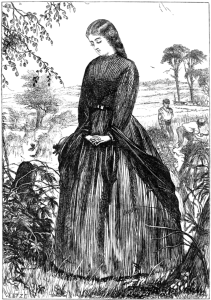
Among the sheaves
I
Among the sheaves—the golden sheaves,
An empty heart, I walk forlorn:
How sadly sigh the alder leaves—
I loathe those fields of mellow corn!
II
Among the sheaves—the golden sheaves,
My heart is full, new hopes are born:
My heart is faint—for Hope deceives:
My passion may be met by scorn!
III
Among the sheaves—the golden sheaves,
My Love is won! No more forlorn,
How sweet the whisp’ring alder leaves—
I bless those fields of mellow corn!
Evelyn Forest
(Pen name of Anne Pares)
( … – … unknown)
Among the sheaves
Illustration: Frederick Eltze (1836–1870)
• fleursdumal.nl magazine
More in: # Classic Poetry Archive, Archive E-F, Archive E-F, Archive O-P, Archive O-P
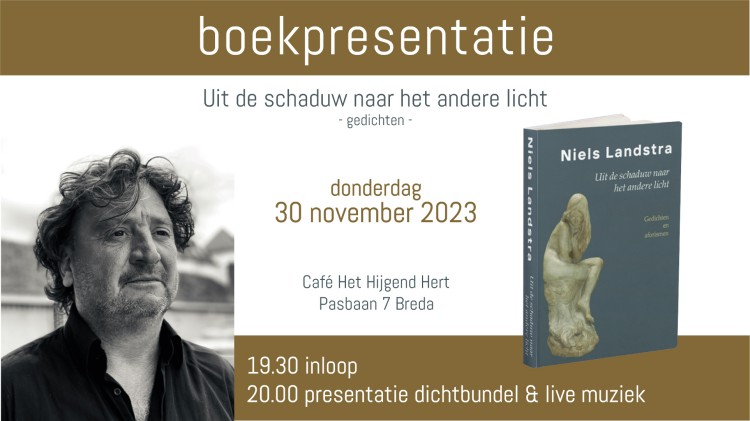
Niels Landstra
Uit de schaduw naar het andere licht
gedichten
Verschijnt 30 november 2023
website: https://www.kijkgedichten.nl/
Niels Landstra (1966) is dichter, schrijver, muzikant, zanger, beeldend kunstenaar en theatermaker.
• fleursdumal.nl magazine
More in: Archive K-L, Archive K-L, Art & Literature News, Landstra, Niels

Au départ, l’idée traversait l’esprit de Grand Corps Malade d’intituler l’album “Portraits” au pluriel.
Il envisageait que chaque chanson représente le portrait d’une personne, d’une chose, ou d’un lieu spécifique. Cependant, au fil du temps, cette notion a évolué, aboutissant finalement au choix du titre “REFLETS”. Ce titre représente pour lui une opportunité d’explorer la réflexion de la société, de capturer l’esprit d’une époque, de saisir les éléments qui nous entourent. Cette approche ouvre la porte à de nombreux…
Liste des titres
No Titre Durée
1. J’ai vu de la lumière 3:31
2. Reflets 2:52
3. Retiens les rêves 3:39
4. Le jour d’après 3:19
5. Autoreflet 4:49
6. Je serai là 3:05
7. Rue La Fayette 3:38
8. C’est aujourd’hui que ça se passe 2:47
9. 2083 3:47
10. La sagesse 3:04
11. Deauville 3:04
12. Paroles et musique 3:57
Reflets est le 8e album studio de Grand Corps Malade sorti le 20 octobre 2023.
Reflets
Album de Grand Corps Malade Sortie
20 octobre 2023
Genre CD, vinyle
Label Anouche Records
Grands Corps Malade
CD “REFLETS”
Prix de vente 15,00€
Main artists: Grand Corps Malade
Genre: Franse chansons
• fleursdumal.nl magazine
More in: #Editors Choice Archiv, Archive G-H, Archive G-H, Art & Literature News, AUDIO, CINEMA, RADIO & TV, Grand Corps Malade, Poetry Slam

Ach Liebste, lass uns eilen
Ach Liebste, lass uns eilen,
Wir haben Zeit:
Es schadet das Verweilen
Uns beiderseit.
Der edlen Schönheit Gaben
Fliehn Fuß für Fuß,
Dass alles, was wir haben,
Verschwinden muß.
Der Wangen Zier verbleichet
Das Haar wird greis,
Der Äuglein Feuer weichet,
Die Brunst wird Eis.
Das Mündlein von Korallen
Wird ungestalt,
Die Händ als Schnee verfallen,
Und du wirst alt.
Drum lass uns jetzt geniessen
Der Jugend Frucht,
Eh denn wir folgen müssen
Der Jahre Flucht.
Wo du dich selber liebest,
So liebe mich,
Gib mir, dass, wann du gibest
Verlier auch ich.
Martin Opitz
(1597 – 1639)
Ach Liebste, lass uns eilen
• fleursdumal.nl magazine
More in: # Classic Poetry Archive, Archive O-P, Archive O-P

Helder als de tafel
Met mannenvingers betast hij boeken die
werden gelezen toen hij een kleine ander was.
Hun inhoud is hem nog helder als de tafel van
1. Waar andere vroege vertrouwdheden heen
zijn is soms de vraag. Zoals: “O zadel dat mij
droeg toen ik nog jongen was, waar rust je leder?”
Bert Bevers
Helder als de tafel
Uit: Bedekte termen, Stabilitas loci, Antwerpen, 2023
•fleursdumal.nl magazine
More in: Archive A-B, Archive A-B, Bedekte Termen, Bevers, Bert
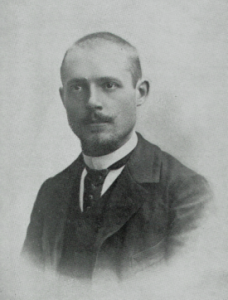
Quatrains
Cœur dur comme une tour,
Ô cœur de pierre,
Donjon de jour en jour
Vêtu de lierre.
De tous liens lié
A cette terre,
Ô cœur humilié,
Cœur solitaire.
Cœur qui as tant crevé
De pleurs secrets,
Buveur inabreuvé,
Cendre et regrets.
Cœur tant de fois baigné
Dans la lumière,
Et tant de fois noyé
Source première.
Ô cœur laissé pour mort
Dans le fossé,
Cœur tu battais encore,
Ô trépassé.
Ô cœur inexploré,
Vaste univers,
Idole décorée,
Jardin d’hiver.
Ô vase de regret
Plein jusqu’aux bords
Du venin d’un remords
Inespéré…
Ô vieil arbre écorcé,
Rongé des vers,
Vieux sanglier forcé,
Ô cœur pervers…
Cœur qui as tant saigné
D’amour, de haine,
Ô cœur mal résigné
De tant de peine.
Cœur tant de fois flétri
Au dur labeur,
Cœur tant de fois fleuri
Aux soirs de mai…
Cœur tant de fois forgé
Sous le marteau,
Cœur tant de fois crevé
Sous le couteau…
Cœur qui a tant rêvé,
Ô cœur charnel,
Ô cœur inachevé
Cœur éternel.
Cœur qui a tant battu,
D’amour, d’espoir,
Ô cœur trouveras-tu
La paix du soir…
Cœur tant de fois pétri,
Ô pain du jour,
Cœur tant de fois meurtri,
Levain d’amour.
Cœur qui a tant battu,
D’amour, de haine,
Cœur tu ne battras plus
De tant de peine.
Cœur dévoré d’amour,
Te tairas-tu,
Ô cœur de jour en jour
Inentendu…
Cœur plein d’un seul regret
Poignant et bref,
Comme un unique fret
Charge une nef.
Cœur plein d’un seul regret
Poignant et sourd,
Comme un fardeau trop lourd
Charge une nef.
Cœur vaisseau démarré
A charge pleine,
Vaisseau désemparé
De sa misaine.
Cœur plein d’un seul amour,
Désaccordé,
Ô cœur de jour en jour
Plus hasardé…
Dans ce noble séjour,
Cœur attardé,
Plein d’un secret si lourd,
Mur lézardé…
Ô cœur exténué,
Péri d’amour,
Ô cœur de jour en jour
Destitué…
Ô peine aux longs cheveux
Couchée au lit
De l’homme que tu veux
Enseveli.
Ô peine aux longs cheveux
Couchée au long
De l’homme juste et bon
Au même lit.
Enseveli sois-tu
Dans cet amour
Et dans cette vertu
Et cette tour.
Loué sois-tu, cœur frêle,
Pour ta rudesse,
Loué sois-tu, cœur grêle,
Pour ta tristesse.
Pour tes renoncements,
Ô dépouillé,
Pour tes abaissements,
Ô cœur souillé.
Cœur tant de fois cloué
Au dur gibet,
Tant de fois bafoué
De quolibets.
Et pardonné sois-tu,
Notre cœur, vil,
Au nom des Trois Vertus,
Ainsi soit-il.
Tu avais tout pourvu,
Ô confident,
Tu avais tout prévu,
Ô provident.
Tu avais tout pourvu,
Fors d’une fièvre,
Tu avais tout prévu,
Fors que deux lèvres…
Tu avais tout pourvu,
Fors une flamme,
Tu avais tout prévu,
Fors une autre âme.
Tu avais fait ton compte,
Ô prévoyant,
Tu n’avais oublié
Qu’un cœur battant…
Charles Péguy
(1873 – 1914)
Quatrains
• fleursdumal.nl magazine
More in: # Classic Poetry Archive, Archive O-P, Archive O-P, Peguy, Charles, WAR & PEACE

freda kamphuis
friends
• fleursdumal.nl magazine
More in: Archive K-L, Archive K-L, Freda Kamphuis, Freda Kamphuis, Kamphuis, Freda, Natural history, Photography
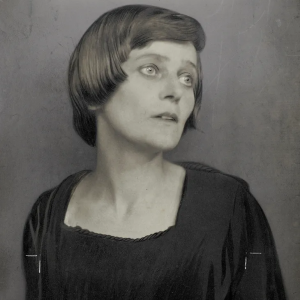
Im Krankenhause
Alle Herbste gehn an mir vorüber.
Krank lieg ich im weißen Zimmer,
Tanzen möchte ich wohl lieber.
An die Geigen denk ich immer.
Und es flimmern tausend Lichter.
O, wie bin ich heute schön!
Bunt geschminkte Angesichter
Schnell im Tanz vorüberwehn.
O, die vielen welken Rosen,
Die ich nachts nach Haus getragen,
Die zerdrückt vom vielen Kosen
Morgens auf dem Tische lagen.
An die Mädchen denk ich wieder,
Die wie ich die Liebe machen.
Wenn wir sangen Heimatlieder,
Unter Weinen, unter Lachen.
Und jetzt lieg ich ganz verlassen
In dem stillen weißen Raum.
O, ihr Schwestern von den Gassen,
Kommt zu mir des Nachts im Traum!
Emmy Hennings
(1885 – 1948)
Im Krankenhause
• fleursdumal.nl magazine
More in: Archive G-H, Archive G-H, Emmy Hennings, Hennings, Emmy, Performing arts

Dromen
Zij laat haar adem op en neer en hen
de wereld dromen. Past daarin met
grage handen bloemetjesjaponnen.
Hij kucht, verlegt zijn hart naar rechts
en voelt het spinnen van hun rosse kater.
Zij ligt nabij aan verre kusten naar de zon
te lonken. Ze slapen samen, delen leven
en verworven smart. Op kastjes troost
van foto’s in hun zilveren ovalen. Ze
wuiven naar elkaar met dichte ogen,
vingers verstrengeld. De wekker tikt
geruchten stil als dode torretjes.
Bert Bevers
Dromen
Uit: Onaangepaste tijden, Zinderend, Bergen op Zoom, 2006
•fleursdumal.nl magazine
More in: Archive A-B, Archive A-B, Bevers, Bert
CATALOG OF SHADOWS II
Kristel van Issum, Martin Kers, Han Stubbe
28.10 – 10.12 2023
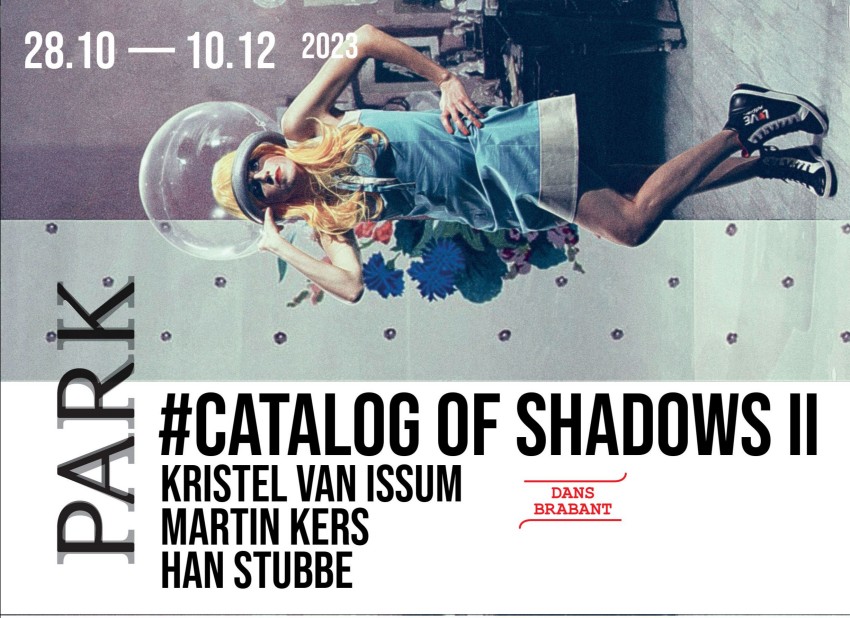
DansBrabant en PARK bestaan tien jaar en dat moet gevierd worden. Choreografe Kristel van Issum, filmmaker Martin Kers en componist Han Stubbe schaafden in deze DansBrabant productie twee jaar lang aan een nieuwe verzameling levensgrote vrouwenportretten. Het resultaat is een stemmig universum van bewegende en vervormende beelden, audio, video en muziek.
Performer Ulrika Kinn-Svensson vertolkt alle zeven rollen en schakelt tussen minieme beweging en groot gebaar. De installatie is doorlopend te bezichtigen, in circa één uur komen alle zeven vrouwen voorbij.
‘#Catalog of Shadows II’ is een video-installatie met zeven levensgrote gefilmde vrouwenportretten, het resultaat van een onderzoek naar hedendaagse beeldcultuur. In 2020 geïnitieerd, drie jaar lang een work-in-progress, en nu te zien een definitieve vorm.
Lees meer over dit project op de site:
www.park013.nl
Open Friday, Saturday and Sunday 1-5 pm
Wilhelminapark 53
5041 ED Tilburg NL
park@park013.nl
www.park013.nl
• fleursdumal.nl magazine
More in: Archive O-P, Art & Literature News, AUDIO, CINEMA, RADIO & TV, DANCE & PERFORMANCE, Exhibition Archive, Park, Performing arts

Never give all the Heart
Never give all the heart, for love
Will hardly seem worth thinking of
To passionate women if it seem
Certain, and they never dream
That it fades out from kiss to kiss;
For everything that’s lovely is
But a brief, dreamy, kind delight.
O never give the heart outright,
For they, for all smooth lips can say,
Have given their hearts up to the play.
And who could play it well enough
If deaf and dumb and blind with love?
He that made this knows all the cost,
For he gave all his heart and lost.
William Butler Yeats
(1865-1939)
Never give all the Heart
• fleursdumal.nl magazine
More in: Archive Y-Z, Archive Y-Z, Yeats, William Butler
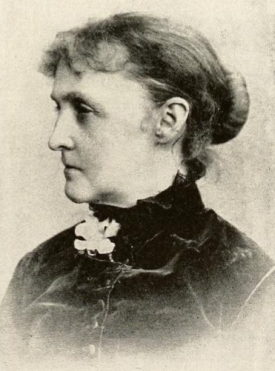
Hearing the Battle
July 21, 1861
One day in the dreamy summer,
On the Sabbath hills, from afar
We heard the solemn echoes
Of the first fierce words of war.
Ah, tell me, thou veilèd Watcher
Of the storm and the calm to come,
How long by the sun or shadow
Till these noises again are dumb.
And soon in a hush and glimmer
We thought of the dark, strange fight,
Whose close in a ghastly quiet
Lay dim in the beautiful night.
Then we talk’d of coldness and pallor,
And of things with blinded eyes
That stared at the golden stillness
Of the moon in those lighted skies;
And of souls, at morning wrestling
In the dust with passion and moan,
So far away at evening
In the silence of worlds unknown.
But a delicate wind beside us
Was rustling the dusky hours,
As it gather’d the dewy odors
Of the snowy jessamine-flowers.
And I gave you a spray of the blossoms,
And said: “I shall never know
How the hearts in the land are breaking,
My dearest, unless you go.”
Sarah Morgan Bryan Piatt
(1836–1919)
Hearing the Battle.
(July 21, 1861)
Poem
• fleursdumal.nl magazine
More in: # Classic Poetry Archive, #Editors Choice Archiv, *War Poetry Archive, Archive O-P, Archive O-P, WAR & PEACE
Thank you for reading Fleurs du Mal - magazine for art & literature